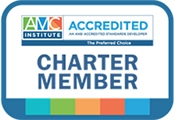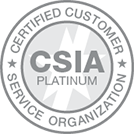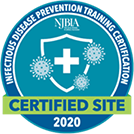As associations explore new ways to deepen member engagement, many are turning to Facebook groups as a tool for fostering community, dialogue, and connection. But are they right for your organization? Here's what you need to know.
Why Associations Are Exploring Facebook Groups
Facebook groups offer a space for like-minded individuals to connect, discuss, and collaborate around shared interests. Unlike your main Facebook page, a group can be tailored to specific demographics or professional needs within your membership. For associations, this means creating micro-communities based on roles, career stages, or specialties - like a group for retired members or early-career professionals. These online communities encourage organic conversation and can significantly enhance the value of membership. But while they’re easy to launch, they do come with some complexities.
The Benefits of Facebook Groups for Member Segmentation and Engagement
One of the most strategic ways associations can use Facebook groups is by segmenting their membership. For instance, a nursing association might create separate groups for students, specialists, or retirees, each offering tailored conversations, resources, and peer support. Private groups add an extra layer of trust, allowing members to discuss sensitive topics like job searches or workplace challenges in a secure environment. These spaces can offer powerful peer-to-peer engagement, support, and knowledge-sharing that strengthens your community.
Facebook Groups for Associations: Key Challenges
Despite their advantages, Facebook groups are not without limitations. To participate, members need an active Facebook account, potentially excluding those who avoid social media. In addition, group management takes real effort. You’ll need at least one or two admins to:
- Approve new member requests
- Monitor discussions for compliance with group rules
- Moderate or approve posts
While tools like Admin Assist can automate some tasks, active engagement and consistent oversight are essential to maintaining a respectful, valuable space for members.
How to Set Up and Manage an Effective Facebook Group
To build a thriving group, start by defining a clear purpose and establishing rules. This ensures members understand why they’re joining and what kind of behavior is expected. Common ground rules include:
- Be respectful and inclusive
- No hate speech or personal attacks
- Don’t share private group content externally
Enable membership screening questions to prevent spam and ensure only qualified individuals are admitted. You may also choose to set post approvals for an added layer of control. This can prevent off-topic or inappropriate content from surfacing unexpectedly.
Promoting Your Association’s Facebook Group to Maximize Visibility
Not every member will stumble upon your group organically. Use your existing communication channels, email, newsletters, your website, and virtual events, to promote it. Include:
- The exact name of your Facebook group
- A link (if possible)
- Step-by-step instructions for those new to Facebook
Proactive promotion gives all members a chance to join and participate.
Final Thoughts: Make Facebook Groups Work for Your Association
Facebook groups can be a powerful tool for building community and increasing member engagement but they require clear goals, active management, and thoughtful promotion. Assign roles within your team or volunteer base to support ongoing moderation. And most importantly, don’t forget to have fun! When managed well, Facebook groups can foster genuine relationships, increase retention, and bring lasting value to your association’s members.
Need Help?
Partner with AH to improve your digital engagement strategy.
Reach out to us at inquire@ahint.com.
Download our Digital Marketing Toolkit




